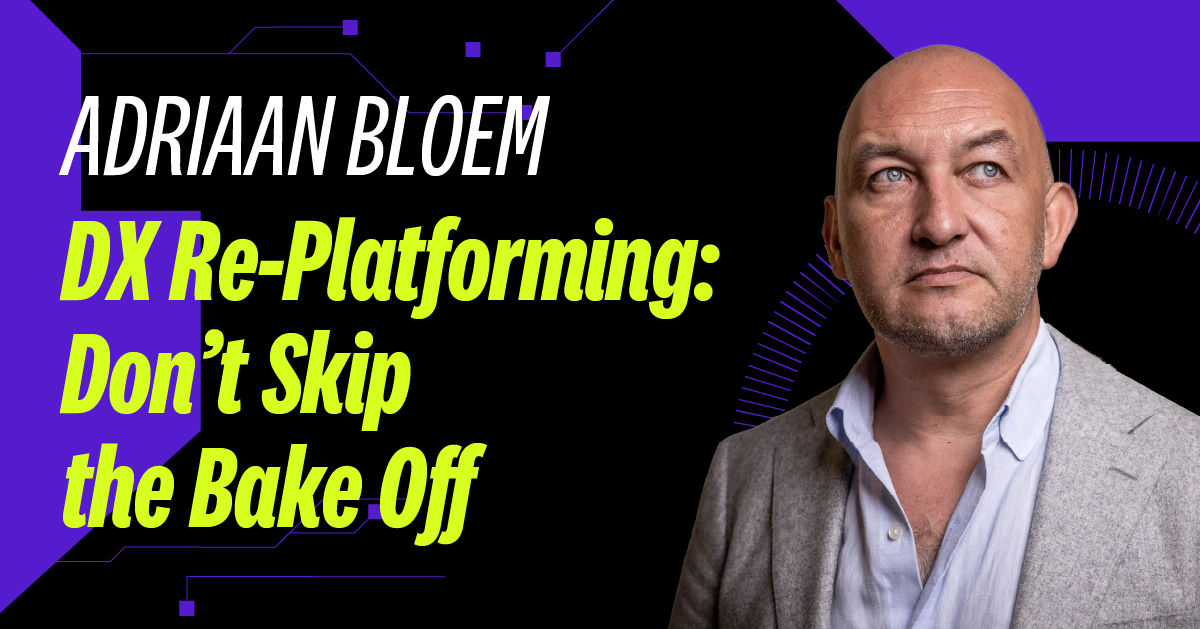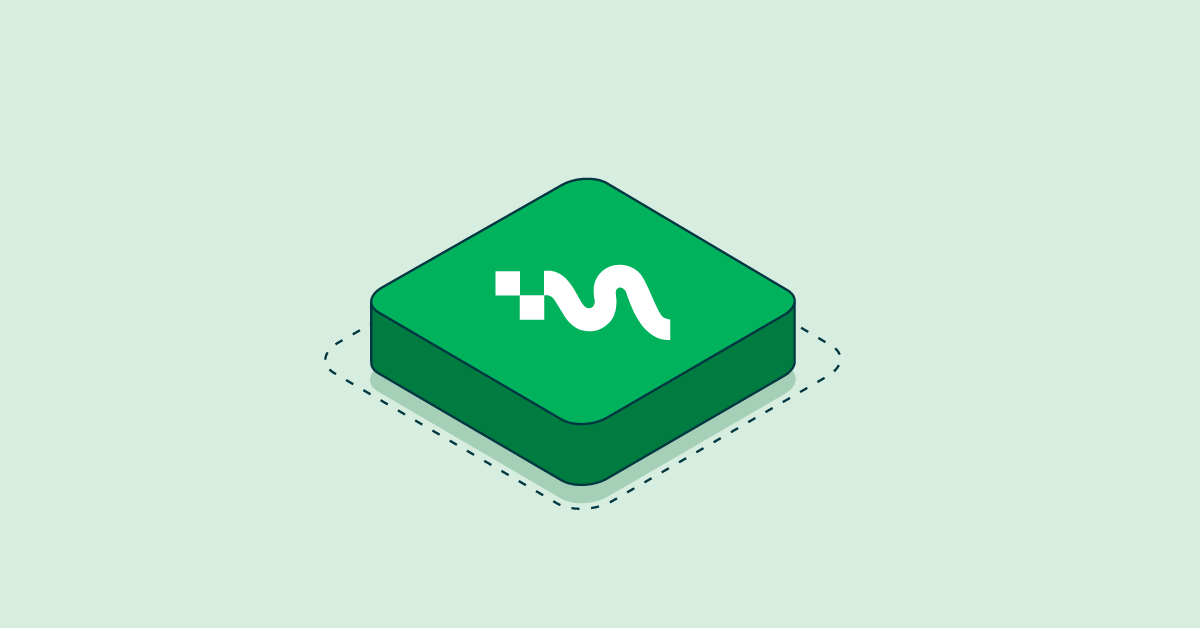- Dec 13, 2021
- 5 min
DX Re-Platforming: Don’t Skip the Bake Off
Magnolia in action
Take 12 minutes and a coffee break to discover how Magnolia can elevate your digital experience.
Have you ever tripped because you didn’t properly tie your shoelaces? Got lost running because you forgot where you were going? Took the wrong train because you were in too much of a rush to read the signs? Or selected a DX platform without testing it first?
Going fast is great, but you shouldn’t ignore the signs, which is why I’m a big fan of ‘The Great British Bake Off’—even though I’ve never watched it. And if you’re about to select a new DX platform, or are in the middle of the process, you should be baking, too.
The Painful RFP
Let me take a step back to set this up properly. If you’re re-platforming your DX, typically, and often with the help of a procurement department, you’ll go through these steps:
Long List of Vendors/Integrators
RFI
Short List
RFP
Decision
And then you start running, because time is of the essence. Because before all of this, you managed to get the buy-in (and budget) to even start the process. That was on the promise of a giant leap forward, and if you didn’t also commit to a frighteningly short timeline for it, you’d at least be under pressure to deliver it as soon as possible. You’ll likely be rushing these steps, and cursing the bureaucratic process around it.
So, like me, you won’t have time to actually watch ‘The Great British Bake Off’, though you might take some time to watch Formula 1. Instead, you’re focusing on speed, and missing a step that will trip you up later: the bake off before deciding.
Why You’re Not Doing a Bake Off
If I sum up the excuses I have had in the past to skip the tests, it was usually a few of the following:
We already knew the platforms we were deciding between.
The demo of the winning vendor was very convincing.
The vendor or integrator promised to address the concerns we identified.
The number one was highly regarded by industry analysts.
The solution fits the budget and timelines.
In fact, these are a pretty good foundation for a decision by themselves, especially if you’ve done your homework on each. In a good RFP process, you’d have these answers. They’re all compelling reasons to skip a bake off and get straight to the highly anticipated implementation. So if you’re running out of time, why complicate matters with a dry run of the finalists?
A Bake Off Is Not a PoC
Of course, in tech, we’d immediately think of this as a proof of concept. But that’s usually reserved for particularly problematic integrations nobody feels confident about. The proof of concept, or PoC, will be narrow in scope, if it happens at all. And it will likely only look at one particular result as a pass/fail. “They can do this one thing,” is the conclusion you hope for.
By contrast, in a proper bake off, you’ll want to assess the capabilities of the contestants to deliver under pressure. They don’t have to deliver your wedding cake just yet, but you’ll be able to grow confidence they’d be able to. You get to see how they get there, and how they communicate in the heat of the moment. A bake off will cost time, but it’ll be worth it: you’ll know what your contestants will be like in the kitchen.
How to Set it Up
A bake off doesn’t have to produce the end result you’re looking for; you only want to know whether you’re likely to get there. Even though it won’t be a PoC, you still have to pick something to demonstrate skills. Set an achievable task:
Pick an important and/or complicated scenario which is narrow in scope, but broad in competencies – not just technically complicated.
Don’t dictate too many details: communication about uncertainty will be a useful indicator.
Be realistic: it should be achievable in a short period of time, and the bake off should be a good pressure cooker test of keeping scope in check.
Be transparent with your potential partners about your evaluation criteria, and take the time invested seriously. If at all possible, have your bake off run by the people who’d participate in the re-platforming project – not just the sales and pre-sales people you might not see much of after you’ve signed. If your budget allows, consider paying the contestants for their time, to level the playing field.
How to Judge the Cakes
Where a bake off really diverges from a proof of concept is the evaluation. A PoC only needs to deliver the mandated functionality; it works – or it doesn’t. By contrast, a bake off can give you the confidence you can tackle any problem with the integrator and vendor you’re working with. It doesn’t have to deliver a working product yet, but it gives you a much broader sense of what it will be like to get to the finish of the marathon once you get going.
How Does this Save Time?
All of this may sound like another tedious hurdle to take, and it can be if you don’t keep it on a stopwatch. But whatever little time you can afford for it, it’ll be worth it. In my experience, re-platforming projects that go through a bake off before starting, are much more likely to finish and deliver within budget, scope, and time. This is totally unscientific, but judging from my own past projects, I’d estimate the bake off doubles the chance of a successful project.
That’s a compelling reason to stop, collaborate, and listen. Given the investment in re-platforming, spending a few weeks can save you from years of running the wrong way. Don’t skip the bake off, even if you think you don’t have the time.
Read more from Adriaan Bloem
This guest blog post is the first of a series of five articles, written for Magnolia by Adriaan Bloem:
Oh, and a sweet surprise for you: Adriaan is not only writing blog articles for you, he also wrote a book:
Audio Blog











